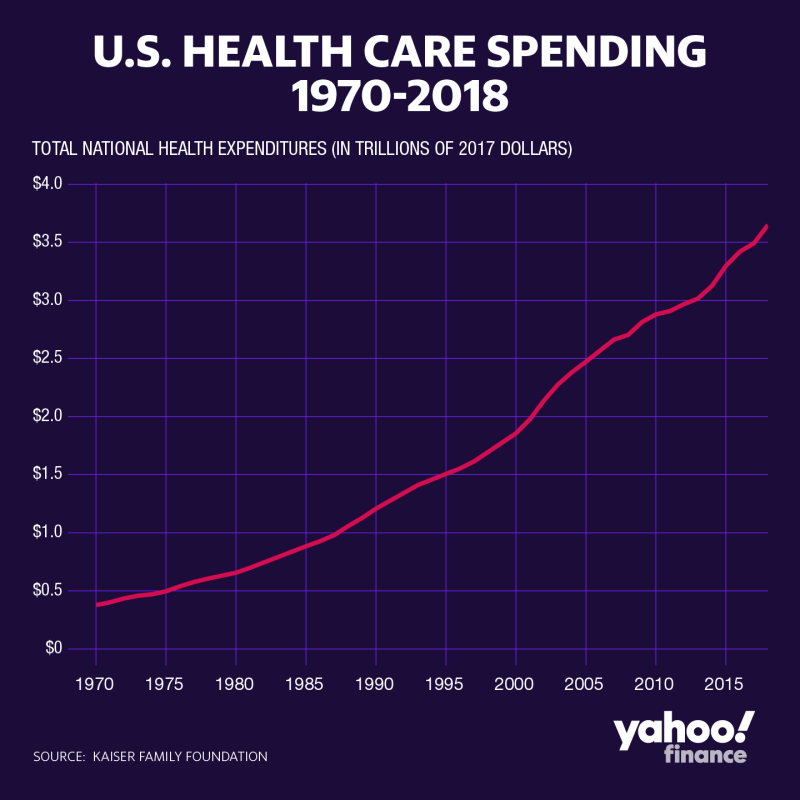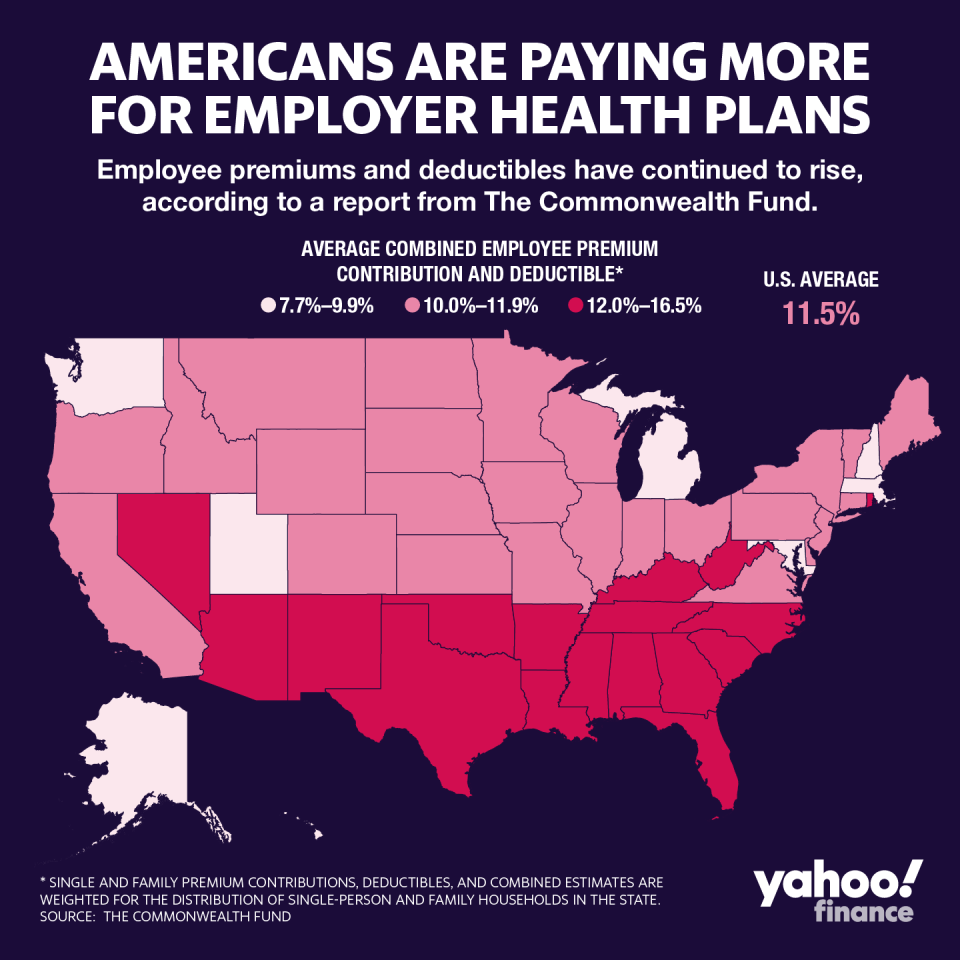1 in 3 U.S. families are skipping medical care due to cost, survey finds
The cost of health care in the U.S. is a major strain on Americans.
Almost a third of families — 32% — decided not to seek medical care in the past year due to cost, according to a new study from Bankrate.com that surveyed 2,596 adults.
They pushed off doctor visits, medications, vaccinations, annual exams, and vision checks, among other types of medical care.
Half of adults with medical expenses said the costs were higher than expected, the survey found. To cover these expenses, they took on additional debt, borrowed money from friends or family, or tapped into retirement savings.

“I am not surprised,” Christine Eibner, senior economist for the RAND Corporation, a nonprofit research organization, told Yahoo Money. “This research supports the argument that out-of-pocket health care costs are too high for some Americans, making it difficult for them to get the care that they need.”
Universal coverage ‘would come with a very high price tag’
The findings correspond to a previous Gallup poll, which also found that 1 in 4 Americans said they or a family member postponed treatment for a serious medical condition in the past year because of the cost, up from just under 1 in 5 a year ago. The result was the highest in Gallup’s trend.
“What we have found is that Americans have consistently put health care costs at the top of their list when it comes to health care issues,” Ashley Kirzinger, the associate director of public opinion and survey research at the Kaiser Family Foundation, previously told Yahoo Money.
Health care costs have become a growing issue in the U.S. Total national health care spending grew 4.6% in 2018, reaching $3.6 trillion, according to the latest national health expenditure data from the Centers for Medicare and Medicaid Services (CMS).

“It’s harder to say how to address this from a policy perspective,” Eibner said. “Providing universal, comprehensive coverage is one approach, but that would come with a very high price tag.”
Presidential candidate Sen. Bernie Sanders has proposed Medicare for All as a way to fix the U.S. health care system. His plan would eliminate medical debt, reduce the cost of prescription drugs, and offer universal long-term care through an income surtax and employer payroll tax.
However, an analysis by the Committee for a Responsible Federal Budget (CRFB), a non-profit and bipartisan public policy organization, found that it would add $12.95 trillion to deficits over a decade.
“Another option would be to find ways to bring prices down,” Eibner said, “through regulation, antitrust enforcement, competition, network management, etc.”

Democratic frontrunner Joe Biden’s plan shares some of those qualities. It’s based on building off of the Affordable Care Act. His plan would also add to the federal deficit, but at less so — $800 billion over 10 years, according to the CRFB report.
Based on the survey, 40% of Americans think Democrats are the ones best equipped to fix the health care system, versus just over a quarter who think Republicans are. And, according to an NBC News/Commonwealth Fund poll, nearly 4 in 5 of likely voters say that the next president’s top priority should be reducing health care costs.
“I do think a number of lawmakers are paying attention to the fact that what Americans are really concerned about are health care costs,” Kirzinger said. “The problem is that addressing the cost of health care in this country is very complicated.”
Adriana is a reporter and editor for Yahoo Finance. She can be reached at adriana@yahoofinance.com. Follow her on Twitter @adrianambells.
READ MORE:
'Top of mind for voters': A record number of Americans are putting off health care due to the cost
Millions of Americans with employer health care are still spending a fortune
'Everyone’s health insurance is more expensive' as more Americans manage chronic diseases
Read the latest financial and business news from Yahoo Finance
Follow Yahoo Finance on Twitter, Facebook, Instagram, Flipboard, SmartNews, LinkedIn, YouTube, and reddit.

 money
money 
